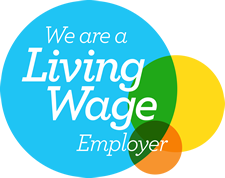
Insights
Helping not-for-profit organisations develop and sustain
the highest levels of employee and volunteer engagement

Insights

Looking back, I remember clearly that it took me a while to make peace with the first set of staff survey findings I encountered as a manager. Unless you work in a shining beacon of an organisation, you are likely to find some things in there that are not what you want to see. And like all feedback you receive in your life, you are quite likely to focus much more on the “constructive” than the “positive”. If you care about the people in your team, you might look at the findings and decide that you are uncomfortable with them and would much prefer to hide them under a rock and not look too hard at them.
However, when I started to communicate with my team about the results of the staff survey and which areas we proposed to concentrate on, I found this urge began to go away. This was mainly because, when you start to talk to people in your team after the results are out, you realise that they are generally extremely pleased that you asked them what they think in a way that meant they could be completely honest, and that now you are taking the time to talk to them about what they said. Even if they were grumpy and cross when they did the survey, they are now more inclined to be positive, as you have shown that you are listening to them. This is the first step to management and team members collaborating to improve life at your organisation.
One thing I learned is that it is a good idea to remain in listening mode after the results are out. You can get carried away with your own analysis of the results and risk telling people what they think. Not everyone thinks the same way – some people will violently disagree with overall findings as their views do not match the majority. So keep listening. They will give you a clue as to which areas matter the most and what is most likely to improve their overall positivity next time.
It also helped to discover that, apart from a few people (usually people who haven’t worked anywhere else), most of your team know that working life has its ups and downs and they don’t expect perfection. They also don’t think you should promise perfection either, because they know you will fail.
5 Linford Forum
Rockingham Drive
Milton Keynes
MK14 6LY
UK
Company No: 4509427
